Juan Domingo Farnós ¿Cómo podemos ayudar a los estudiantes a aprender más? Debemos mentalizarnos en acompañarlos, solo eso, para que aprendan según sus particularidades (PERSONALIZACIÓN Y SOCIAL LERNING). Juan Domingo Farnós Pongamos que os estudiantes tienen voz y voto en la forma de presentar su aprendizaje de competencias para permitir la instrucción personalizada y diferenciada. Los…
Get Started for FREE
Sign up with Facebook Sign up with X
I don't have a Facebook or a X account

 Your new post is loading... Your new post is loading...
 Your new post is loading... Your new post is loading...

Gust MEES's curator insight,
May 5, 2018 5:25 AM
What does this guidance cover?
Learn more / En savoir plus / Mehr erfahren:
https://www.scoop.it/t/21st-century-learning-and-teaching/?&tag=Metacognition

Gust MEES's curator insight,
March 18, 2018 11:10 AM
Formal knowledge representation (KR) is about building models of the world, of a particular domain or a problem, which allow for automatic reasoning and interpretation. Such formal models are called ontologies and can be used to provide formal semantics (i.e., machine-interpretable meaning) to any sort of information: databases, catalogs, documents, web pages, etc. The association of information with such formal models makes the information much amenable to machine processing and interpretation.
Learn more / En savoir plus / Mehr erfahren:
https://www.scoop.it/t/21st-century-learning-and-teaching/?&tag=Ontology

laustenreed's curator insight,
March 8, 2018 3:48 PM
Looking into the future Of Distance Education. Is this reality?
Chong Jiaxuan's comment,
March 9, 2018 9:58 AM
According to the article, education now focusses more on information and data, followed by understanding and knowledge, and in last place, transfer of expertise. However, in the future, when artificial intelligence becomes common, education needs to focus on transfer of expertise before everything else. I feel that this is rather true. Knowledge of events and subjects might give you a boost in your career, but what is more important is the skills to learn, which is the transfer of expertise. Education needs to shift in order to meet this demand of skills needed in the future.
Julián David Cano's curator insight,
March 20, 2018 7:14 PM
It can be evidenced that a lot of aspects of education continue being as traditional as always. Nevertheless, I must highlight that nowadays people are becoming aware about the importance of incorporating technology into the classrooms. Although people are becoming aware, taking advantage of technology to improve the learning process is still a challenge.
This article is really interesting due to the fact that it provides specific examples of skills needed in this century, and that can be achieved through the use of technological devices. Also, this article made me think about my role as a future teacher and the responsibility to start making little changes into the classrooms in order to improve education and contribute positive aspects to it. it is clear that the article makes a direct relationship about technology and education, and how to prepare students to deal with the 21st century skills.

Gust MEES's curator insight,
January 31, 2018 10:07 AM
New measures to boost key competences and digital skills, as well as the European dimension of education
1. A Council Recommendation on Key Competences for Lifelong Learning: Building on the Recommendation on Key Competences adopted in 2006, this proposal brings forward important updates reflecting the rapid evolution of teaching and learning since then. It aims to improve the development of key competences of people of all ages throughout their lives and to provide guidance to Member States on how to achieve this objective. A particular focus is placed on promoting entrepreneurial drive and innovation-oriented mindsets in order to unlock personal potential, creativity and self-initiative. Moreover, the Commission is recommending steps to foster competences in science, technology, engineering and mathematics (STEM) and motivate more young people to embark on a career in these fields. The proposals made today should also be seen as part of the answer to urgently improve European education systems to face the many challenges highlighted in the latest PISA survey. More generally, the measures will support Member States in better preparing learners for changing labour markets and for active citizenship in more diverse, mobile, digital and global societies.
2. A Digital Education Action Plan that outlines how the EU can help people, educational institutions and education systems better adapt to life and work in an age of rapid digital change by:
Initiatives include supporting schools with high-speed broadband connections, scaling up a new self-assessment tool for schools on the use of technology for teaching and learning (SELFIE) and a public awareness campaign on online safety, media literacy and cyber hygiene.
3. A Council Recommendation on common values, inclusive education and the European dimension of teaching: This initiative proposes ways in which education can help young people understand the importance of and adhere to common values set out in Article 2 of the Treaty of the European Union. It aims at strengthening social cohesion and contributing to fight the rise of populism, xenophobia, divisive nationalism and the spreading of fake news. The proposal also strengthens inclusive education to promote quality education for all pupils as well as the European dimension of teaching, so children also learn about Europe's common heritage and diversity and get a good understanding of the functioning of the EU. To support these aims, the Commission will take steps to increase virtual exchanges among schools, notably through the successful e-Twinning network, and boost school mobility through the Erasmus+ programme.
Learn more / En savoir plus / Mehr erfahren:
https://www.scoop.it/t/21st-century-learning-and-teaching/?&tag=EU

Gust MEES's curator insight,
November 20, 2017 10:00 AM
Les responsables du portail européen des données ouvertes (European Data Portal: www.europeandataportal.eu), exploité par la Commission européenne, viennent de publier les résultats de leur analyse 2017 sur l’état d’avancement des pays de l’Union européenne dans le domaine de l’open data.
Learn more / En savoir plus / Mehr erfahren:
https://www.scoop.it/t/luxembourg-europe/?&tag=Open+Data
https://www.scoop.it/t/luxembourg-europe/?&tag=EU

Gust MEES's curator insight,
August 28, 2017 10:21 AM
Smartly regulating financial innovation requires all stakeholders – the financial sector, start-ups, regulators and academics – to understand technology and law.'
Learn more / En savoir plus / Mehr erfahren:
http://www.scoop.it/t/luxembourg-europe/?tag=Digital+L%C3%ABtzebuerg
http://www.scoop.it/t/luxembourg-europe/?&tag=FinTech
http://www.scoop.it/t/luxembourg-europe/?&tag=Laws
http://www.scoop.it/t/luxembourg-europe/?&tag=University+Luxembourg

Nik Peachey's curator insight,
June 19, 2017 2:32 AM
Good to see critical thinking so high up the list. 
Gust MEES's curator insight,
June 24, 2017 11:41 AM
Today’s global employers are searching for employees that have specific skills. Those skills may not be the same needed in 10 years though. In 2009, the US Department of Labor estimated 65% of today’s school children would eventually be employed in jobs that have yet to be created. The number is far higher today. The influx of technology is what has changed the shape of education forever. For this reason, schools must create opportunities for students to engage in higher level thinking skills and experience 21st century skills while using technology.
Learn more / En savoir plus / Mehr erfahren:
http://www.scoop.it/t/21st-century-learning-and-teaching/?&tag=Hybrid-Learning
http://www.scoop.it/t/21st-century-learning-and-teaching/?&tag=Blended+Learning...
http://www.scoop.it/t/21st-century-learning-and-teaching/?&tag=Hybrid+Pedagogy
http://www.scoop.it/t/21st-century-learning-and-teaching?tag=Critical-Thinking
https://gustmees.wordpress.com/2015/05/26/what-are-the-skills-needed-from-students-in-the-future/

Gust MEES's curator insight,
May 19, 2017 11:32 AM
In her early teaching years, Wanny Hersey learned how hands-on projects—which would eventually become known as “making”— could engage and motivate her English students like nothing she’d seen before. She’d witnessed the heartbreak of watching a one-size-fits-all education system fail to engage students who needed it most. And the joy of nurturing students’ natural desire to solve problems and create.
Design thinking gives purpose to making. It's a problem-solving, action-oriented, human-centered process that we engage in to assist our students in their journeys as makers. These experiences as a teacher and administrator inspired her to found Bullis Charter school—with both her past and future students in mind. The award winning K-8 public school is focused on design thinking, making, and project-based learning—all of which Wanny believes engage children, and grow their natural curiosity.
Wanny spoke to EdSurge about how making builds empathy, why it’s important to compensate teachers for continuously learning, and her advice for administrators who want to drive change through design thinking.
Learn more / En savoir plus / Mehr erfahren:
http://www.scoop.it/t/21st-century-learning-and-teaching/?&tag=Design-Thinking
https://gustmees.wordpress.com/2014/10/03/design-the-learning-of-your-learners-students-ideas/
Lorena Lepe's curator insight,
May 21, 2017 10:45 PM
This is a really interesting article, i recommend reading it.

Gust MEES's curator insight,
April 25, 2017 4:54 AM
The Luxembourg House of Financial Technology (LHoFT) has at last opened its doors and is now poring over the applications of 50 fintech start-up companies.
Learn more / En savoir plus / Mehr erfahren:
http://www.scoop.it/t/luxembourg-europe/?&tag=LHoFT
http://www.scoop.it/t/luxembourg-europe/?&tag=FinTech
Uraore's curator insight,
April 15, 2020 11:50 PM
Très utile en ce temps de confinement international !
Uraore's curator insight,
April 15, 2020 11:52 PM
Très utile en ce temps de confinement international !
Uraore's curator insight,
April 16, 2020 12:00 AM
Très utile en ces temps de confinement international !

Gust MEES's curator insight,
October 17, 2016 10:18 AM
The Rigor Relevance Framework®
Learn more / En savoir plus / Mehr erfahren:
http://www.scoop.it/t/21st-century-learning-and-teaching/?tag=Rigor

Gust MEES's curator insight,
October 7, 2016 10:02 AM
Critical Thinking
Learn more / En savoir plus / Mehr erfahren:
http://www.scoop.it/t/21st-century-learning-and-teaching?tag=Critical-Thinking

Roberto Aníbal Arce's curator insight,
October 11, 2016 11:36 AM
Buenos recursos para enseñar pensamiento crítico
|

Oskar Almazan's curator insight,
March 26, 2018 9:09 AM
Teachers are the most important school-related factor influencing student learning. Teachers can help level the playing field and provide opportunities for success to all their students. They can inspire students to innovate; to think and reflect and to work in collaboration with others.

Geemik Maria Açucena Da Silva's curator insight,
April 7, 2018 8:23 AM
"Teachers are the most important school-related factor influencing student learning. Teachers can help level the playing field and provide opportunities for success to all their students. They can inspire students to innovate; to think and reflect and to work in collaboration with others."

Gust MEES's curator insight,
March 11, 2018 1:49 PM
The classroom of the future, according to the world’s best teachers
Learn more / En savoir plus / Mehr erfahren:
https://www.scoop.it/t/21st-century-learning-and-teaching/

Pablo Peñalver's curator insight,
March 13, 2018 4:20 AM
The classroom of the future, according to the world’s best teachers
Learn more / En savoir plus / Mehr erfahren:
https://www.scoop.it/t/21st-century-learning-and-teaching/

Sharon Berman's curator insight,
February 26, 2018 4:01 PM
Interesting perspective - great to see that CT can be associated with learning areas other than STEM.

Vivalist's curator insight,
March 1, 2018 10:21 AM
Computational Thinking (CT) is "the thought processes involved in understanding a problem and expressing its solutions in such a way that a computer can potentially carry out the solution."
Toys such as the recently Kickstarted Turing Tumble do just this: introduce kids to the notion of algorithms. It's a very powerful field of studies for kids and grown-ups alike, because it helps understanding what's behind the curtains when it comes to computation. It teaches how to divide a big problem into bunch of smaller ones that are easier to solve - and this is a solid skill to own.
Angela's curator insight,
July 12, 2019 10:20 AM
Multiple representations of computational thinking may encourage those with math anxiety to make connections between the processes to how they see and solve the world. Not one right way to see and solve even though there may be one right answer.

Gust MEES's curator insight,
January 14, 2018 11:15 AM
Est-ce que votre développement professionnel est efficace ?
Learn more / En savoir plus / Mehr erfahren:
https://gustmees.wordpress.com/?s=professional

Gust MEES's curator insight,
September 13, 2017 11:49 AM
À côté de la réforme de l’examen et du diplôme de fin d’études, la valorisation des compétences numériques des adolescents constitue l’une des principales nouveautés qui seront introduites dans l’enseignement secondaire à compter de cette nouvelle année scolaire.
Des digital leaders à formerToujours dans le cadre du numérique, le ministère a également lancé le label «Future Hub» pour valoriser les lycées qui s’ouvrent aux technologies et à un apprentissage innovant dans le domaine des sciences, de la technologie, de l’ingénierie et des mathématiques.
Pour obtenir ce label, ces lycées doivent préparer les adolescents à la diversité des métiers du secteur des TIC grâce à des supports et des méthodes pédagogiques adaptées.
Learn more / En savoir plus / Mehr erfahren:
http://www.scoop.it/t/luxembourg-europe/?tag=Digital+L%C3%ABtzebuerg
http://www.scoop.it/t/luxembourg-europe/?&tag=Future+Hub
http://www.scoop.it/t/luxembourg-europe/?&tag=Luxembourg+Tech+School+pilot+project
http://www.scoop.it/t/luxembourg-europe/?&tag=Digital+4+EDUcation

Gust MEES's curator insight,
August 3, 2017 6:43 PM
Get Challenged
Learn more / En savoir plus / Mehr erfahren:
https://gustmees.wordpress.com/2014/03/29/practice-learning-to-learn/
https://gustmees.wordpress.com/2015/04/13/dos-and-donts-adapting-to-21st-century-education/
https://www.scoop.it/t/21st-century-learning-and-teaching/?&tag=PLN

Gust MEES's curator insight,
June 7, 2017 2:22 PM
Teacher professional learning is of increasing interest as one way to support the increasingly complex skills students need to learn in preparation for further education and work in the 21st century. Sophisticated forms of teaching are needed to develop student competencies such as deep mastery of challenging content, critical thinking, complex problem-solving,
effective communication and collaboration, and self-direction. In turn, effective professional development (PD) is needed to help teachers learn and refine the pedagogies required to teach these skills. However, research has shown that many PD initiatives appear ineffective in supporting changes in teacher practices and student learning. Accordingly, we set out to discover the features of effective PD.
This paper reviews 35 methodologically rigorous studies that have demonstrated a positive link between teacher professional development, teaching practices, and student outcomes. We identify the features of these approaches and offer rich descriptions of these models to inform those seeking to understand the nature of the initiatives.
Learn more / En savoir plus / Mehr erfahren:
https://gustmees.wordpress.com/?s=coaching
https://gustmees.wordpress.com/?s=professional+development

Rosemary Tyrrell, Ed.D.'s curator insight,
June 8, 2017 10:59 AM
A must-read for anyone interested in faculty professional development

Gust MEES's curator insight,
May 7, 2017 11:47 AM
1. Compétition. Les éléments compétitifs d'un jeu ne se trouvent généralement pas dans les méthodes d'apprentissage traditionnelles, comme un cours magistral ou une discussion en classe. La concurrence apporte de la motivation aux étudiants / joueurs pour s'engager dans un jeu et finir une activité (d'apprentissage). Cela nécessita pas nécessairement un autre participant, la motivation…
Learn more / En savoir plus / Mehr erfahren:
http://www.scoop.it/t/21st-century-learning-and-teaching/?&tag=Game+Based+Learning
http://www.scoop.it/t/21st-century-learning-and-teaching/?&tag=Gamification
http://www.scoop.it/t/21st-century-learning-and-teaching/?&tag=games
Jessica Henao's curator insight,
March 21, 2017 9:52 AM
The 21st century skills and the common 4Cs have been changing and into a new set of characteristics... .It’s clear that technologies undergoing exponential growth are shaping the skills we need to be successful, how we approach education in the classroom, and what tools we will use in the future to teach and learn.

Magaly Siméon's curator insight,
April 9, 2017 4:01 AM
Very interesting subject to be considered and discussed. I will disclose the post to my contacts and subscribers in http://www.quanticaconsultoria.com

Succeed Education's curator insight,
October 20, 2016 6:06 PM
Great article about how the brain learns. 
Serge G Laurens's curator insight,
October 28, 2016 3:29 PM
Brain Hacking 304: Why Every Educator Needs To Know How The Brain Learns

Gust MEES's curator insight,
October 8, 2016 8:26 AM
Think about the jobs in today’s economy — the ones we’re supposed to prepare students for after graduation. Are employees evaluated using bubble-in tests to prove they know the ins and outs of their job? Do they learn and use new skills one at a time in a vacuum? The questions sound a bit silly until you realize too often that’s what students take away from their education. Why is the culture to drill facts into students’ heads just to pass a test?
Learn more / En savoir plus / Mehr erfahren:
http://www.scoop.it/t/21st-century-learning-and-teaching/?tag=Learning+by+doing
http://www.scoop.it/t/21st-century-learning-and-teaching/?tag=PBL
|



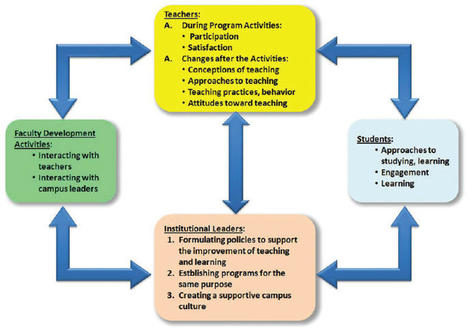

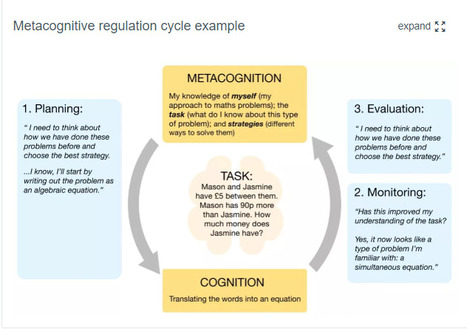
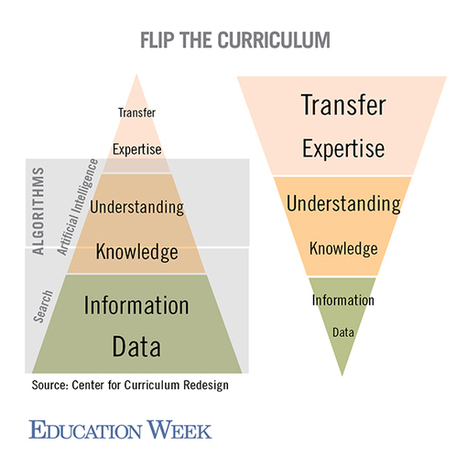
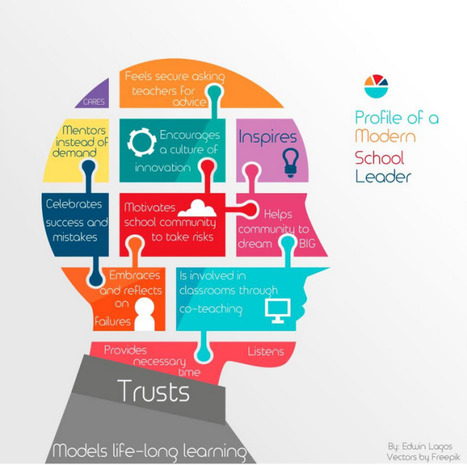
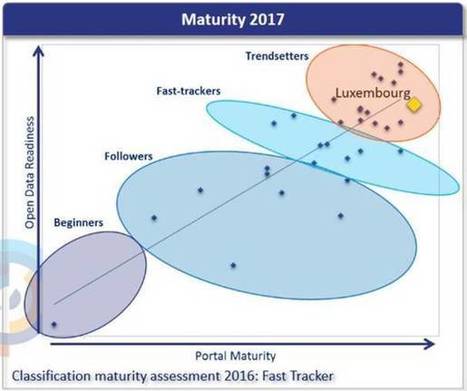

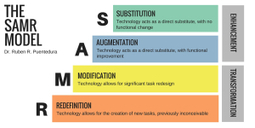

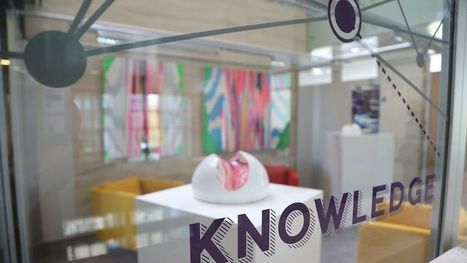
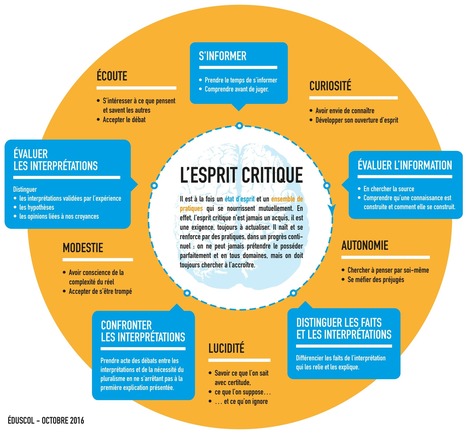
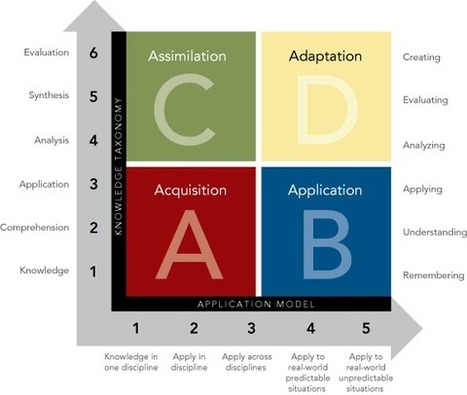
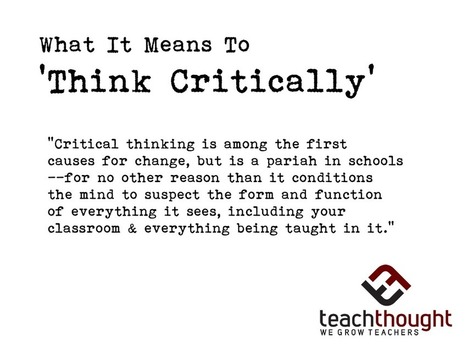
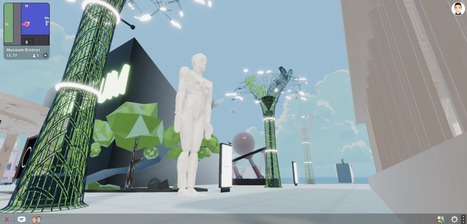
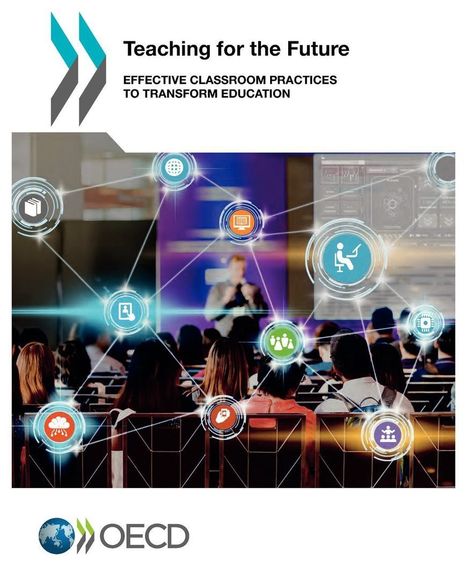
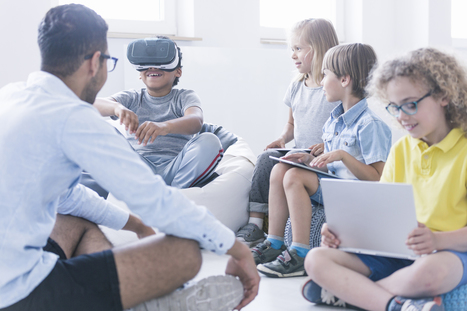

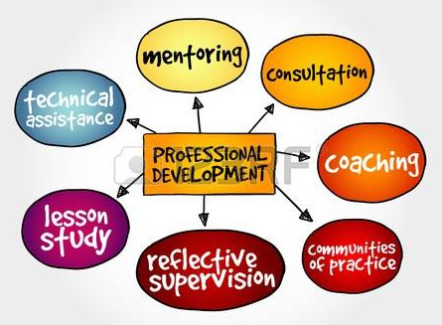
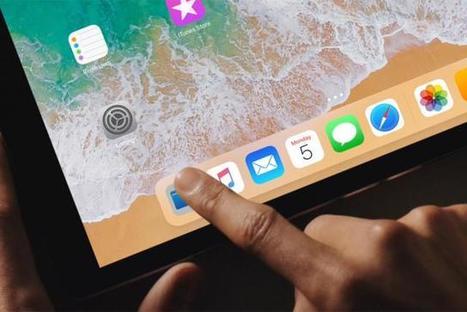


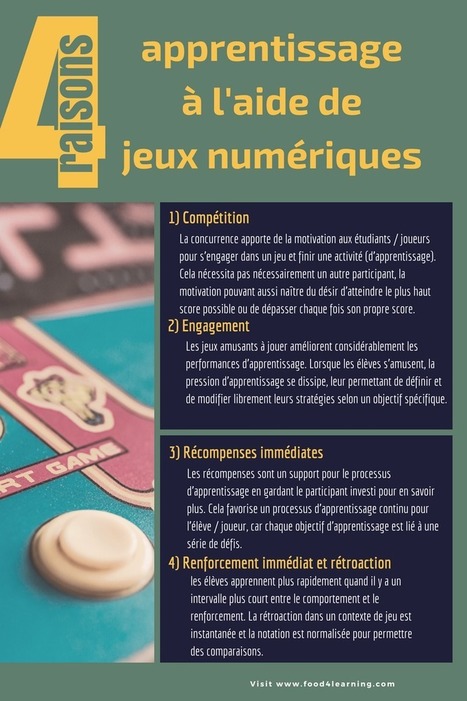

![[Infographic] Why every educator needs to know how the brain learns | E-Learning-Inclusivo (Mashup) | Scoop.it](https://img.scoop.it/gIMRZ7-tl8Fd3EJjeWc8rjl72eJkfbmt4t8yenImKBVvK0kTmF0xjctABnaLJIm9)






